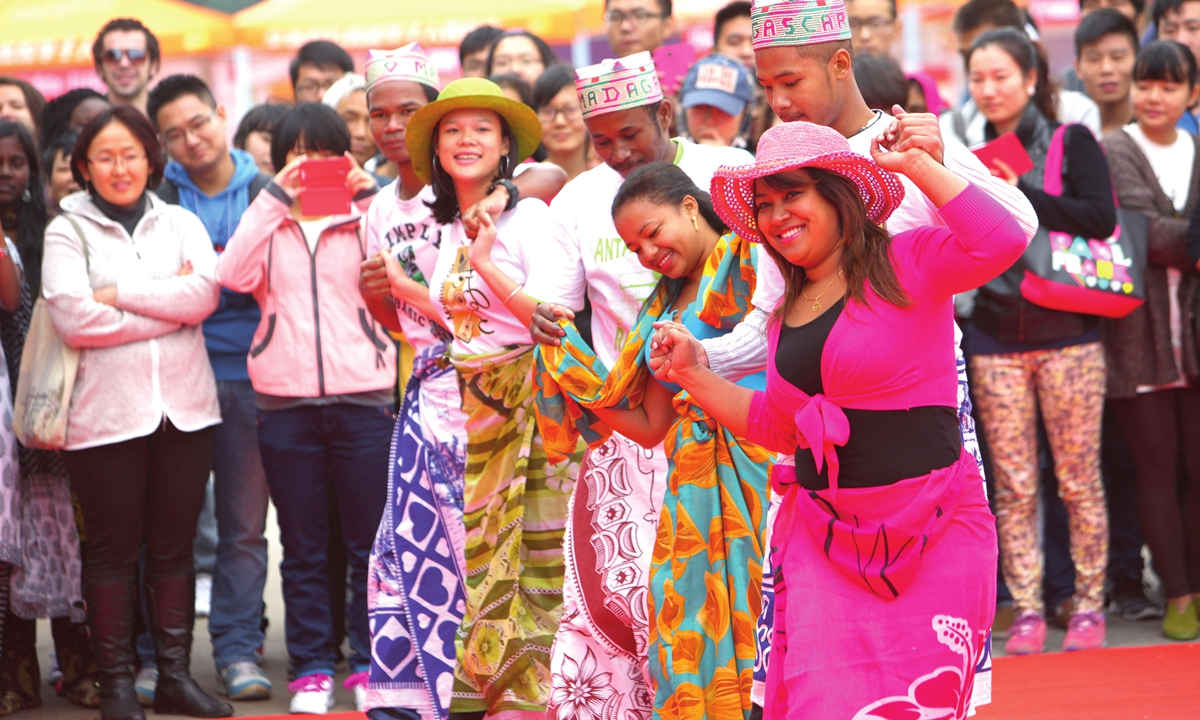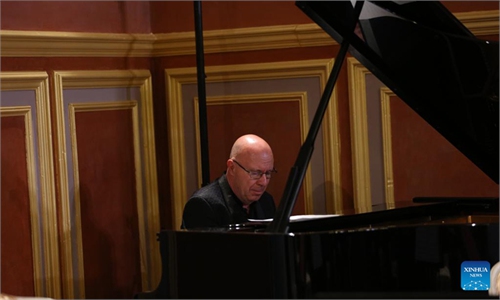
Students from Madagascar perform at a campus event in Ningbo, East China's Zhejiang Province. File photo: VCG
"We hope to strengthen cultural exchanges between China and Madagascar through Chinese songs, so that more young Madagascans can discover China and appreciate Chinese culture," Chen Lijuan, director of the Confucius Institute of the University of Antananarivo, said on Saturday on the sidelines of the final of a Chinese song contest in the Madagascan capital.
The final of the second edition of the Chinese song contest entitled "The Most Beautiful Voice in Madagascar," co-organized by the University of Antananarivo and the Jiangxi Normal University, was held on Saturday with the participation of 23 candidates from all around the large island of the Indian Ocean.
"Compared to the first edition, the second edition recorded a greater number of registrations. We received over 70 registrations in total and the general level of the candidates has also improved compared to the previous edition," said Chen.
Andimalaza Elfinia, a third-year student at the Confucius Institute of the University of Antananarivo, won first place in the competition.
"Despite the difficulty of the Chinese language, I made a lot of effort to succeed," she told the Xinhua News Agency after the competition.
"I almost gave up on the song several times because it is difficult to reach that octave, and the rhythm and melody are hard to follow, but my friends encouraged me and I finally succeeded," she said.
Elfinia has hinted at plans to return to her home region in the northeast of the country after graduating with a degree in Chinese language to work as an interpreter.
For Ratovonjanahary Onisoa Melodie, who won second place in the competition, the Chinese language is complicated in terms of pronunciation and writing.
"Our students especially like singing Chinese songs when they start out learning the Chinese language," said Chen.
"We hope that through this contest, more Malagasy youths will find the joy of learning the Chinese language, and more Malagasy youths will communicate with Chinese youths through music and songs, building bridges of cultural communication between young people in China and Madagascar."
On the same occasion, Zhang Wei, minister counsellor of the Chinese Embassy in Madagascar, stressed that "music is a popular form of cultural expression that knows no boundaries, conveys people's identification with their national culture and can strengthen mutual understanding and promote human exchanges."
While recalling that 2022 marks the 50th anniversary of the establishment of diplomatic relations between China and Madagascar, Zhang hoped that the Chinese song contest "can strengthen and broaden the bridge of friendship between China and Madagascar, while bringing our two peoples closer together through song and music."
For her part, Sendra Nirina Rajaonarison, director of Development and Coordination of Partnership at the Madagascan Ministry of Higher Education and Scientific Research, stressed that language and culture are "inseparable."
"Song is one of the most important elements of a country's culture, we can say that song will reflect the soul of a country," she added.
Xinhua

